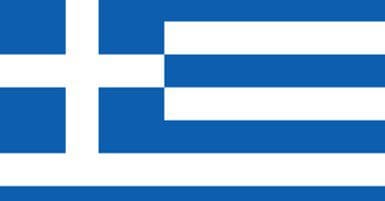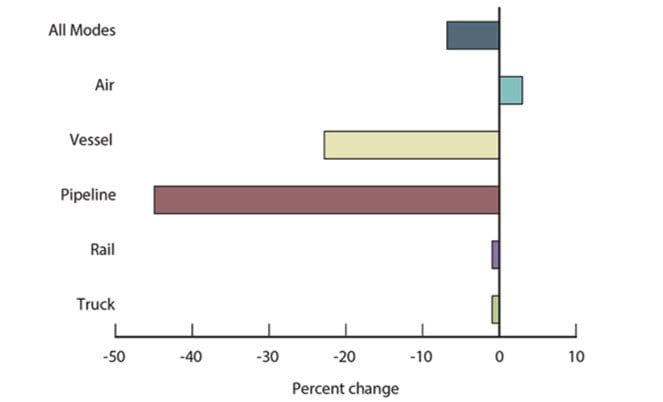If you are reading this LogisticsViewpoints blog post today, July 2, you can be categorized as one of the following:
- Not a US resident – today is just Thursday to you
- A US resident working today, but wishing you weren’t working
- A US resident, working, but mentally already on 4th of July vacation
- One serious logistics enthusiast
Now on to this week’s logistics news:
- Greece faces supply-chain crunch as crisis deepens
- Train Derailment, Fire Prompts Evacuation in Tennessee
- Obama signs trade bills into law, says tough battle still ahead
- S.-NAFTA Trade Down in April
- TANAP awards major Turkish logistics contract to CEVA
- Kuehne Nagel Acquiring Memphis Intermodal Firm
 Greece and its seemingly never ending clash with its creditors reached a new threshold this week, as it missed a billion euro payment to the IMF and failed to renew a credit agreement. Subsequently, the country enacted capital controls, limiting Greek citizens’ access to euros. This capital disruption will undoubtedly have a negative impact on productivity and the Greek supply chain. In the short term, companies will likely have to rely on existing back up plans or readily available options. In the longer term, as the article notes, this crisis will serve as an additional blow to the reliability of conducting business in Greece, and companies are likely to respond by reducing their exposure to the risks inherent in having Greece as a node in one’s supply chain.
Greece and its seemingly never ending clash with its creditors reached a new threshold this week, as it missed a billion euro payment to the IMF and failed to renew a credit agreement. Subsequently, the country enacted capital controls, limiting Greek citizens’ access to euros. This capital disruption will undoubtedly have a negative impact on productivity and the Greek supply chain. In the short term, companies will likely have to rely on existing back up plans or readily available options. In the longer term, as the article notes, this crisis will serve as an additional blow to the reliability of conducting business in Greece, and companies are likely to respond by reducing their exposure to the risks inherent in having Greece as a node in one’s supply chain.
A CSX train carrying flammable chemicals (acrylonitrile) derailed and caught fire in eastern Tennessee this morning, leading to evacuations within a two mile radius of the site. A recent increase in oil transportation by rail and a number of derailments have increased calls for railcar safety improvements to minimize the damage from future derailments. It is likely that the derailment of this chemical shipment will cast light on the existing safety guidelines for hazardous chemical transportation.
President Obama signed into law a bill that provides him with the ability to “fast track” a potential Pacific Rim trade deal (the Trans Pacific Partnership) that has recently been contentiously debated in Congress. The key features of the TPP include the elimination of tariffs and barriers to trade and investment, the development of production and supply chain among the TPP members, regulatory coherence, competitive and business facilitation, support for small and medium sized businesses, economic development initiatives, innovation initiatives, and potential for agreement expansion.
 US-NAFTA trade value declined by 6.8 percent in April, when compared to the same month in 2014. However, the decline was mainly due to the reduction in fuel prices. The value of trade fell across all modes, except air. Pipeline values decreased by 44.9 percent, while waterborne freight fell by 22.8 percent. The Bureau of Transportation Statistics reports trade in value, so these numbers are affected by price volatility of commodities such as oil, and comparisons do not directly reflect changes in volume.
US-NAFTA trade value declined by 6.8 percent in April, when compared to the same month in 2014. However, the decline was mainly due to the reduction in fuel prices. The value of trade fell across all modes, except air. Pipeline values decreased by 44.9 percent, while waterborne freight fell by 22.8 percent. The Bureau of Transportation Statistics reports trade in value, so these numbers are affected by price volatility of commodities such as oil, and comparisons do not directly reflect changes in volume.
 TANAP, the Trans Anatolian Natural Gas Project, has signed a deal with CEVA Logistics in Turkey for the movement of gas pipes. In April, I wrote a post, Iran and International Trade Expansion that discussed TANAP and its importance to gas supply in southern Europe. The CEVA deal involves ground transportation and contract logistics services supporting the movement of 1.2 million tons of steel pipes into 2018.
TANAP, the Trans Anatolian Natural Gas Project, has signed a deal with CEVA Logistics in Turkey for the movement of gas pipes. In April, I wrote a post, Iran and International Trade Expansion that discussed TANAP and its importance to gas supply in southern Europe. The CEVA deal involves ground transportation and contract logistics services supporting the movement of 1.2 million tons of steel pipes into 2018.
From the M&A file, Kuehne + Nagel announced that it entered into an agreement to acquire Memphis-based ReTrans, a non-asset based intermodal transportation management company with over $500 million in revenue and 300 employees.
Have a great weekend!

















Leave a Reply